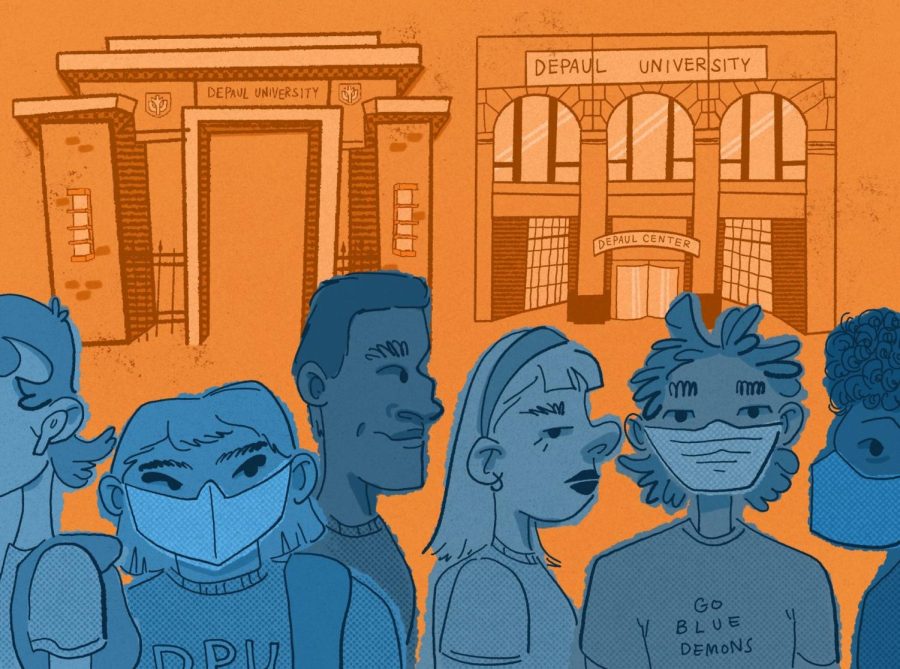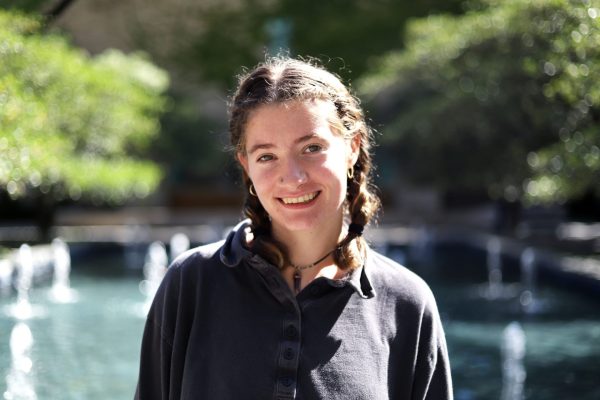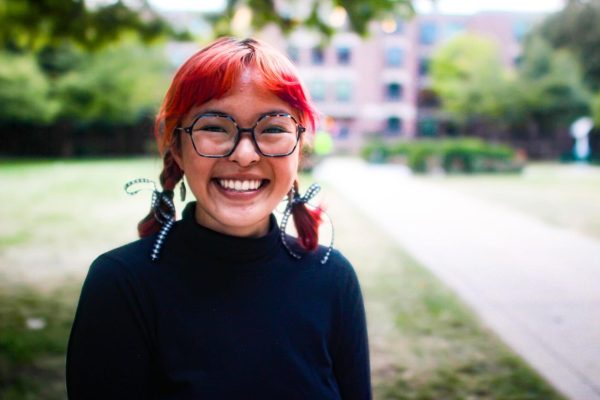At age 11, Abby Hawkins was diagnosed with type one diabetes, an autoimmune disease characterized by the pancreas’s inability to produce insulin. Not only was Hawkin’s now required to inject herself with insulin multiple times per day, but she had to start taking her health much more seriously.
Catching certain diseases or infections could be deadly for Hawkins due to her body’s inflammatory response spiking her blood sugar levels, triggering conditions such as diabetic ketoacidosis and kidney damage or failure. Still, no number of precautions could have prepared Hawkins for the public’s reaction to the Covid-19 pandemic.
“It’s frustrating to see that when I’m in the U.S. or around people from the U.S., the majority of people do not take the pandemic seriously,” Hawkins said. “People are more concerned with going back to ‘normal’ without the pandemic being over.”
Currently attending graduate school in Germany, the George Mason alum articulates exasperation over The White House’s recent decision to end the Covid-19 public health emergency on May 11. More than three years will have passed since Covid-19 was first detected in Wuhan, China.
“The current measures that are mandated are not enough to prevent spread of disease or mitigate the pandemic, so lifting these protocols will only lead to an increased spread of disease,” Hawkins said.
Although nearly three months stand between the federal government and restructuring, the future of treatment and prevention remains vulnerable. During the pandemic’s initial months, millions of Americans remained continuously enrolled in Medicaid as part of the Families First Coronavirus Response Act (FFCRA).
Following the order’s termination, the Medicaid continuous enrollment enactment will end March 31, leaving an estimated 5.3 to 14.2 million without coverage. Without insurance, individuals will have to pay full price for vaccines ranging from $80 to $130.
However, Moderna recently announced that they will continue providing free vaccines to uninsured or underinsured individuals.
Still, according to a study conducted by Axios and IPSOS, 46% of Americans have returned to their pre-Covid-19 lives, with only 37% continuing to wear masks outside their homes.
“Unfortunately, adapting to this current reality has never taken into consideration disabled people or other populations that remain at risk for diseases like COVID,” Hawkins said. “So, for immunocompromised and disabled people, the idea of returning to a normal that never considered our safety has never been the goal.”
DePaul junior Anabel Diaz continues to wear a mask and practice habits like regularly washing her hands to reduce her chances of catching an illness.
“As an immunocompromised individual, when I am sick it is a bit more severe than someone who isn’t. I could spend weeks getting over a cold and longer fighting off a virus,” Diaz said. “It is a different time now then what it was a year ago and two years ago. Our immune systems and the vaccines we have received from the pandemic have definitely helped both ease our minds and our bodies. But Covid-19 isn’t cured or will ever be cured.”
Following Omicron’s initial spike last winter where the U.S. saw more than 4 million cases per week, many individuals loosened or dropped their precautions altogether, burdening those like Diaz with the weight of her health and others.
“I feel like it was my own personal responsibility to myself to keep following protocol but was understanding why others stopped completely,” Diaz said. “The pandemic is still happening, but I think it’s also time to start moving some of the attention to the negative effects it has on our education system, homeless population and the change of our workplace.”
DePaul Bioethics professor Craig Klugman — and member of the University’s Covid-19 health task force — believes that the nation’s radical individualism will prevent many from ever taking the pandemic seriously again.
“When this all started, there was this message of we were in this together and we were wearing masks to help our neighbors,” Klugman said. “Then it became, we’re wearing masks to help our neighbors and ourselves. And now it’s like, wear a mask if you want to, it’s like the whole onus is on to take action now.”
Despite the majority of Covid-19 cases being mild, Klugman expressed fear over the long-term effects of the disease, especially concerning long Covid-19.
“We have found that this is a virus that stays in the body. Even if you’re not sick, you have it,” Klugman said. “We don’t know what this being in the body is going to do long-term. We know it’s probably something to do with inflammation. I was reading a paper yesterday that says there’s an increase in breast cancer two years after women have COVID-19…like we just don’t know.”
Furthermore, only 33% of Americans have received their updated Bivalent booster, which offers increased protection against Omicron, leaving many vulnerable to the virus’s many variants and subvariants.
“In this new era of living with 550 deaths a day, we have decided that we’re not in it together,” Klugmain said. “That’s a philosophical shift and I think it’s a shift made to protect the economy.”
For DePaul junior Chloe Crosby, Biden’s announcement felt like an excuse to get as many people as possible back in the office and working again no matter the outcome.
“I definitely don’t think Covid-19 is over just because Biden says it is. A lot of the ending of protocols seems like a capitalistic cry for people to return to work with little care for the implications,” Crosby said.
While vaccines and treatments like Paxlovid have aided in controlling Covid-19’s spread, roughly 3,000 people continue to die every week due to the virus, on top of approximately 300,000 weekly cases, according to the CDC.
Crosby, who continues to take pandemic protocols, believes that most individuals will refuse to return to masking and to limit social interactions, even if a new vaccine-resistant variant does appear.
“A lot of people got fatigued by the pandemic and their way of dealing with it is to pretend like it doesn’t exist so I’m not sure what would make them care,” Crosby said.




